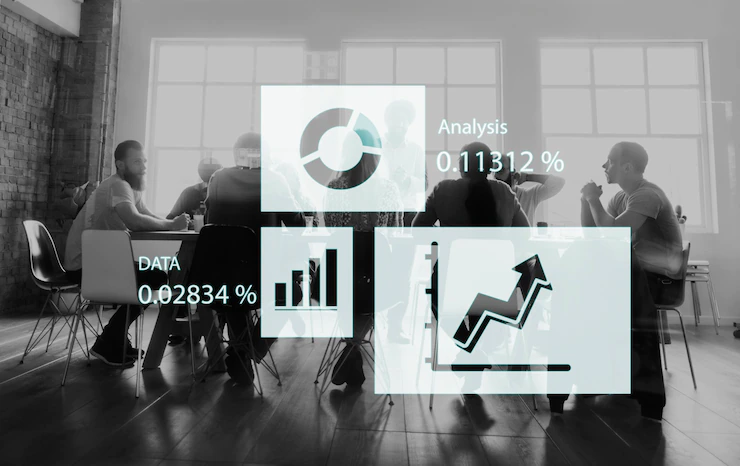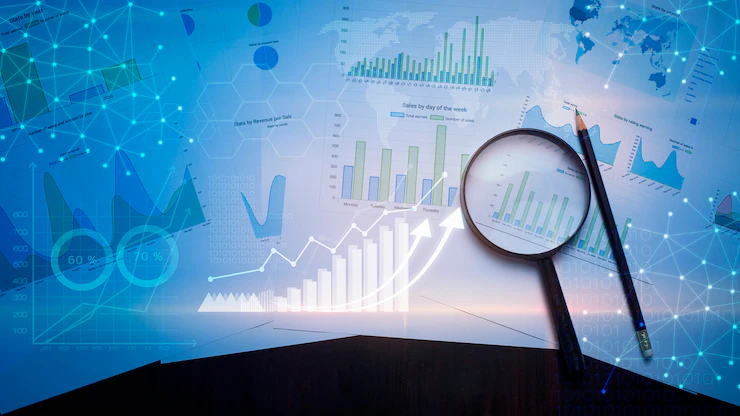What Is Data Analytics Used For?
Digital technologies give today’s companies access to vast amounts of data. Understanding and analyzing this information is valuable for businesses, so organizations in all sectors increasingly use data analytics. But what exactly is data analytics, and what is it used for?
The digital development of businesses has increased the amount of data they collect. Long gone are the days when customer relationships were managed by companies using paper documents.
Today, organizations use dedicated software to capture all possible information, including who the customers are, how often they buy, what products they buy, their history of email exchanges, etc.
Moreover, companies collect data about their customers, the market, competitors, and the global environment. These are vast amounts of information, without which it is no longer possible today to develop business and build a competitive advantage. With data, organizations can activate other new levers of growth.
Data allows managers to understand what is happening in the company and the world and make the best strategic decisions. This process would not have the opportunity to occur without data analysis. Data analytics is becoming important in the era of big data, or datasets so large that they exceed the ability of traditional computer applications to process them in a reasonable amount of time.
What Is Data Analysis – Definition And Types
Data analytics deals with the exhaustive study of a collection of information. It is the cleaning, transforming, and modeling of data to extract practical insights from it and enable companies to make better business decisions.
Data Analysis Can Be Of Two Types:
- Quantitative: The information is numerical, and the company can compile accurate statistics. For example, ratings given by online shoppers to some products in an online store.
- Qualitative: This is information you can get from the database, usually presented in textual form. For example, these can be the collected opinions of the surveyed target group about a new product or service.
Data analysis allows a better understanding of the past and present and can help predict the future. This machine learning technique involves identifying patterns in existing data to predict future data.
That is useful for growing a company, developing new products, or finding new solutions to problems. So let’s find out what data analysis is used for and what benefits companies have from using it daily.
The Usefulness Of Data Analysis

Data analysis can have a variety of applications, whether for companies, governments, or nonprofit organizations. Researchers and data analysts use data analysis techniques in their research, and companies also use them to make decisions.
This science can help businesses better comprehend their clients, evaluate advertising campaigns, personalize content, create content strategies and develop products. Let’s look at well-illustrated examples of sectors in the industry using analytics to improve their business performance.
1. Finance
Companies in the finance industry, particularly banks, were among the first to implement data analytics tools into their operations.
For example, banks analyze, among other things, the transactions, purchase history, and buying habits of their customers to find out how someone spent their money, how often they spent it, and on what products and services.
That allows banks to offer tailored services to their customers and retain customers with them more effectively. Moreover, data analytics is also used in the finance industry to prevent fraud or identity theft.
2. E-commerce
You certainly won’t be surprised to realize that online commerce is an industry that heavily uses data analytics in its operations. For example, through data analysis, e-commerce companies study site traffic or browsing patterns to define which customers have less or more potential to buy a particular product or service.
3. Supply chain management
A third example is FMCG (Fast Moving Consumer Goods) companies looking for efficiencies in their supply chain. With the information provided by big data, they can commit to restocking retailers’ shelves with fit products, in the right quantities and at the proper time.
Their partners provide reports containing inventory and frequency of product sales. This information is used to reconcile and forecast ordering and shipping needs.
The power of data analytics can dramatically improve a company’s processes while reducing costs and increasing revenues. Firms can choose from a variety of approaches to data analytics.
Of course, it depends on their desired results and the effort and resources they are willing to invest. Anyway, one thing is for sure. Data analytics is constantly evolving and producing better results.
This field of science allows companies to change their procedures to solve problems and achieve their goals. In other words, it is through data analysis that business growth is possible.
Read Also:
